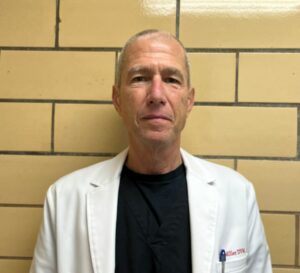Link to your individual collections by creating a new linklist in the Navigation section of the admin.
You can then have it appear here by choosing your new linklist under Customize Theme / Sidebar.

Show 1379: The Healing Power of Pets
This week, Joe and Terry Graedon welcome your stories and questions about living with animals. Does a cat purring on your lap help you calm down after a hectic day? Has walking the dog become a part of your exercise routine? Tell us about your pets at 888-472-3366 between 7 and 8 am EST. Or send us your stories ahead of time: radio@peoplespharmacy.com. Veterinarian Chuck Miller and veterinary technician Kevlin Swepston will be answering your questions and responding to your reports.
The Healing Power of Pets:
On March 16, 2024, Scott Simon described on Weekend Edition how his family’s life has been taken over by animals: a French poodle, a white cat, a hamster. Many of us share our homes with animals and wouldn’t have it any other way. Despite occasional challenges (Scott Simon’s dog Daisy ate a chocolate bar and needed emergency veterinary care!), our animal friends enrich our lives. Research shows that dog owners are more likely to survive a heart attack or stroke (Circulation: Cardiovascular Quality and Outcomes, Oct. 8, 2019). Previous studies have shown that people who live with dogs usually get more exercise, so that may be part of the picture. But it may not be the whole story.
Dogs and cats are not the only creatures to share our homes. Fish tanks are popular, and research shows that watching fish swim in an aquarium might help humans relax. Heart rate and blood pressure drops (PLoS One, July 29, 2019). Some people feel that their fish offer companionship, although it is unclear that the fish feel the same way.
How Do Pets Affect Our Health?
Some scientific studies have focused on harmful pathogens that animals and humans in the same household might share. But one study that examined the microbiome of pet owners found a decrease in pathogenic bacteria and an increase in beneficial bacteria (Research in Veterinary Science, March 11, 2024). Researchers point out that in the last several decades, people have changed the way they treat their pets and that research is still struggling to catch up with the impacts on both human and animal health.
The Amazing Ability of Dogs to Sniff Out Danger:
Dogs have a highly developed sense of smell, which is their primary way of experiencing the world. As a result, people have found that dogs can be trained to detect tell-tale odors from a range of cancers, including melanoma, lung cancer, colorectal cancer, prostate cancer or breast cancer. With training, dogs can also learn to detect infections with a high degree of accuracy. During the COVID-19 pandemic, researchers were able to train dogs to detect COVID infections quickly. A few airports utilized this capability to screen air travelers.
Dogs may also be able to alert people to episodes of hypoglycemia or epileptic seizures. Very few of our household pets are actually providing these important medical services, but in many cases they could.
Welcoming Therapy Animals:
Some hospitals, including Duke, maintain a program that allows certain patients to interact with therapy animals. These specially trained pets (usually dogs) provide companionship, cheer and a reminder of home. The coordinator of Duke’s pet therapy program for cancer patients joins us to answer questions.
Please tell us about your household companions. How do you see human-animal interactions affecting your health? You can email us before or during the show: radio@peoplespharmacy.com. You can also call 888-472-3366 between 7:00 and 7:50 am EST on Saturday, March 23, 2024.
This Week's Guests:
Charles Miller, DVM, is the owner of Triangle Veterinary Hospital in Durham, North Carolina. Dr. Miller has been serving the pets and animal owners of the area for 32 years. His website is https://trianglevet.com/
[caption id="attachment_129967" align="alignnone" width="300"] Charles Miller, DVM[/caption]
Charles Miller, DVM[/caption]
Kevlin Swepston, RVT, is the coordinator for Oncology Volunteer Services & Pets at Duke. She serves as the primary contact for pet therapy at Duke Health by overseeing the Pets at Duke program’s operations including initial and ongoing evaluations of therapy dog teams. Kevlin ensures that therapy dog teams provide patients with vital companionship, develop and maintain physical function, emotional support, and are a welcomed distraction throughout their time at Duke.
[caption id="attachment_129968" align="alignnone" width="225"] Kevlin Swepston, RVT[/caption]
Kevlin Swepston, RVT[/caption]




